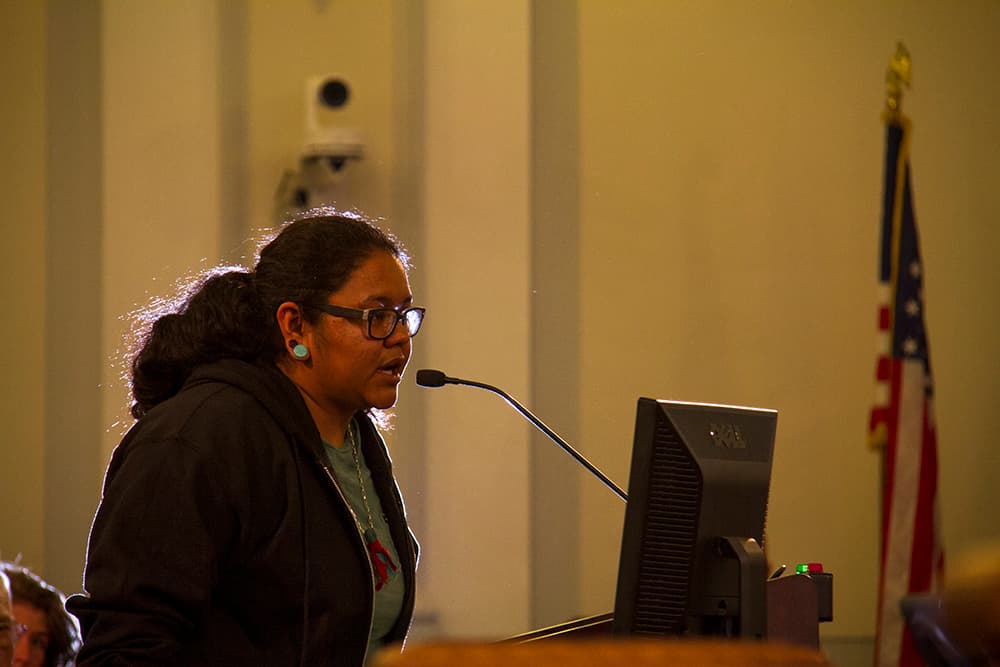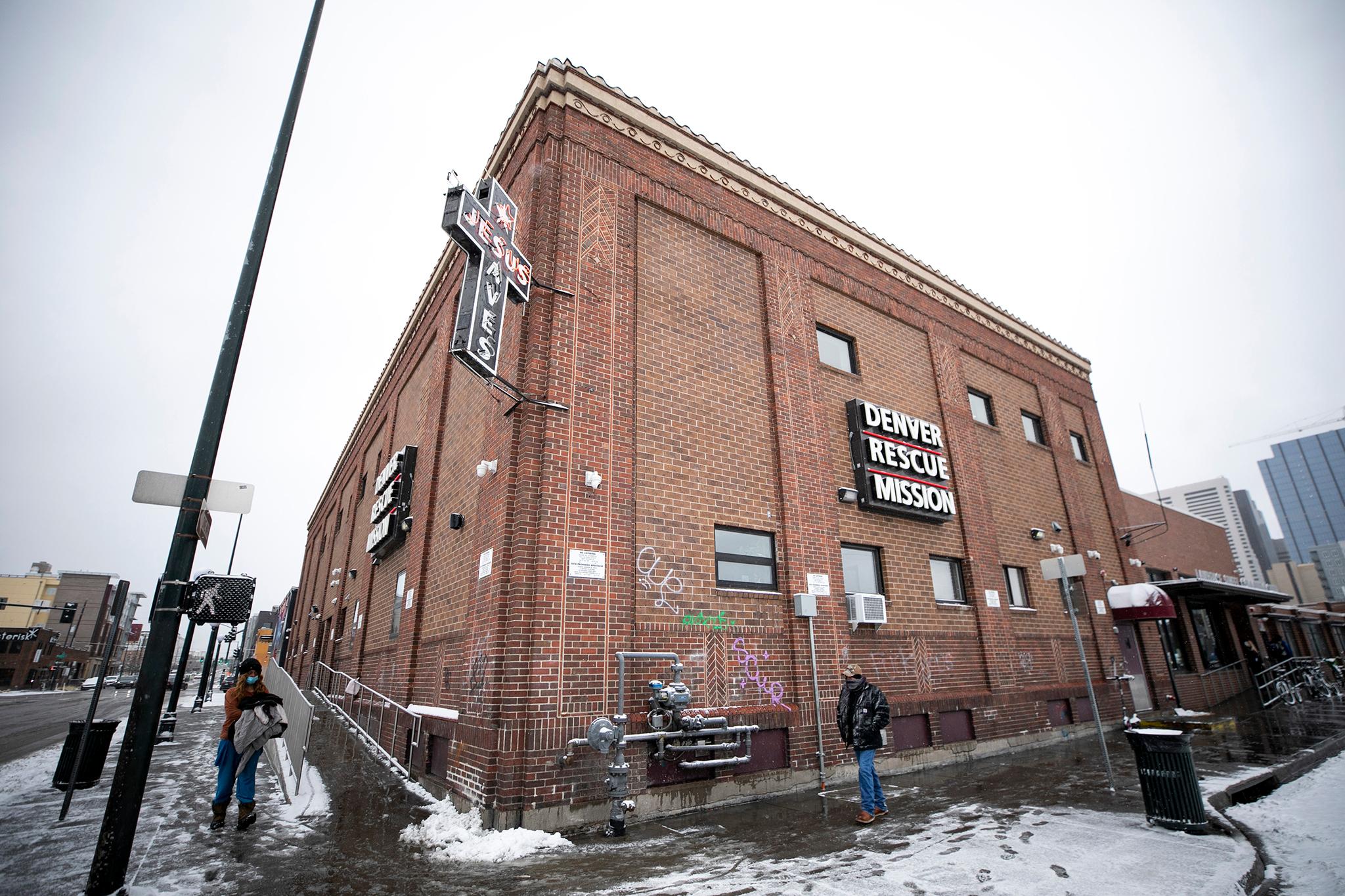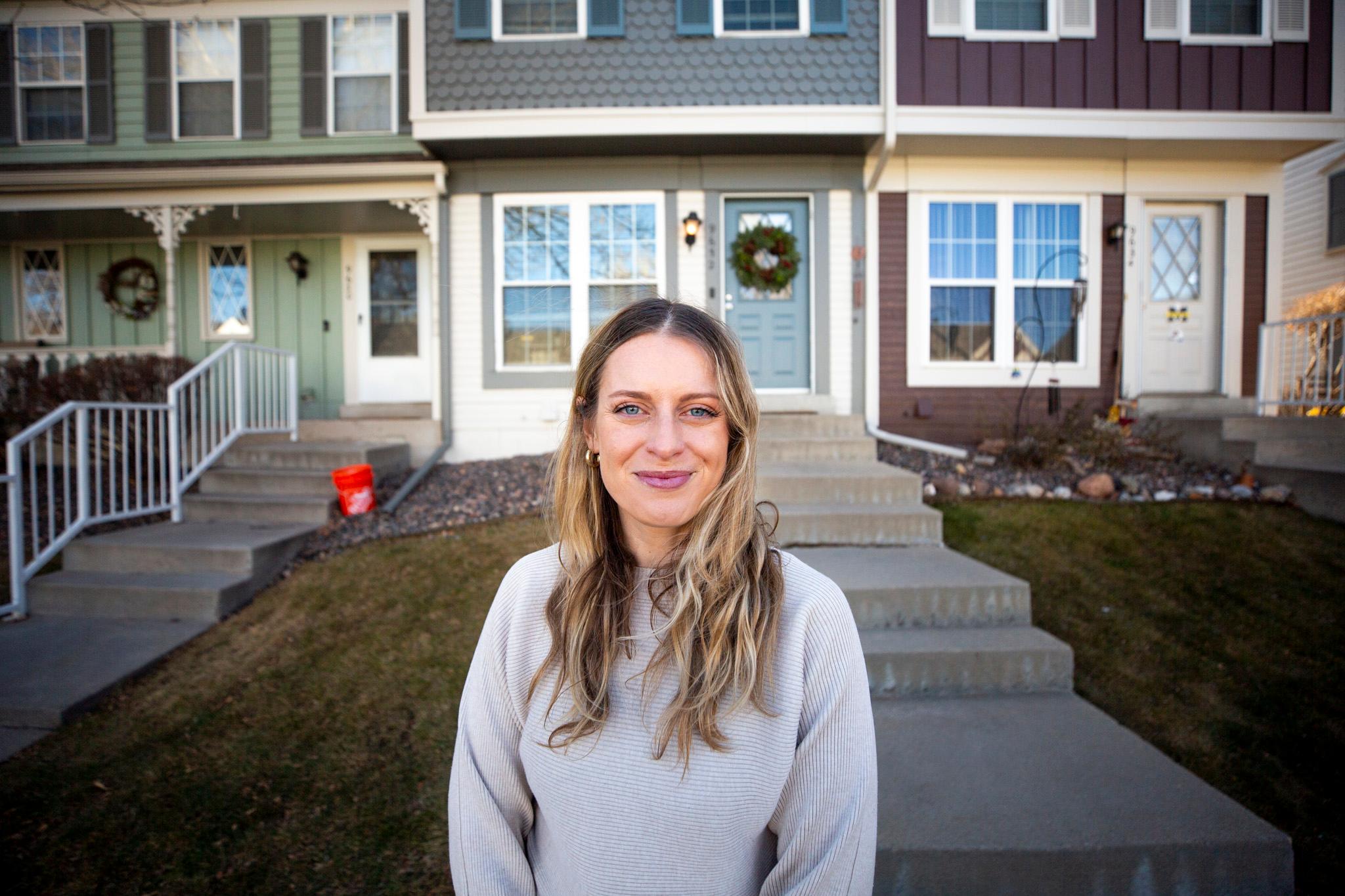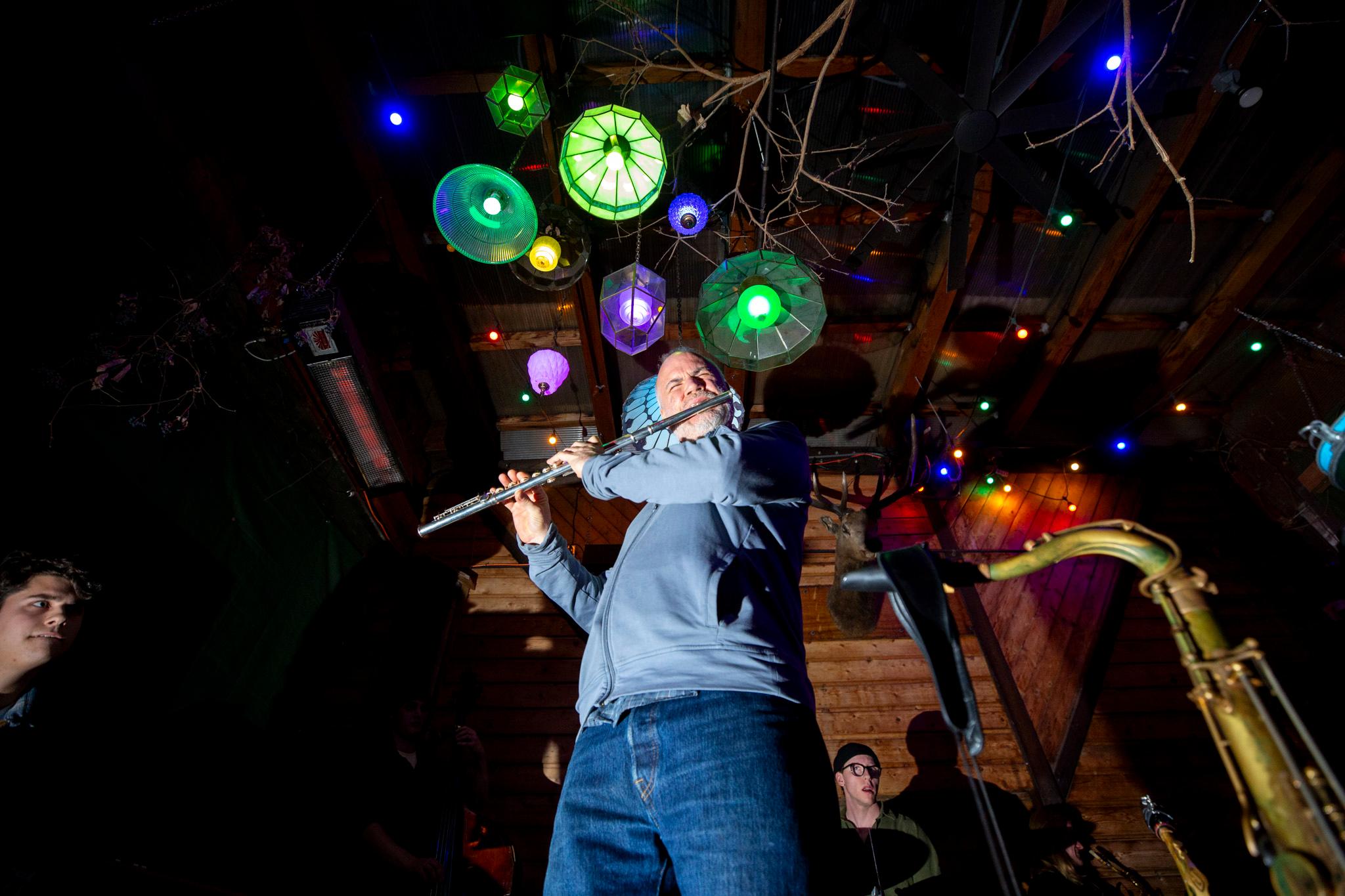Teen mother Prisma listened as Suzanne Banning, president and CEO of Florence Crittenton Services of Colorado, described another young woman the organization supports who had lost her home because the Denver apartment building had been converted to condos.
"That's horrible," Prisma said softly.
The 19-year-old was matter-of-fact about her own difficulties. She, her two sons and their father were kicked out of his mother's home in Aurora in the summer when the strains of three generations living together became too much.
The young family lived in their car for a month. After Banning and her staff helped them get motel vouchers they bounced between the car and motel rooms for a time. Now they are sheltered in churches and other places of worship in a network organized by the Family Promise of Greater Denver to mobilize the faith community to transform meeting spaces or classrooms into temporary bedrooms for homeless families. Each church provides shelter a week at a time, so Prisma and her family have to keep moving.
"So far, every church has had showers," said Prisma, who asked to be identified by her first name only. She and her family are on several wait lists for permanent affordable housing.
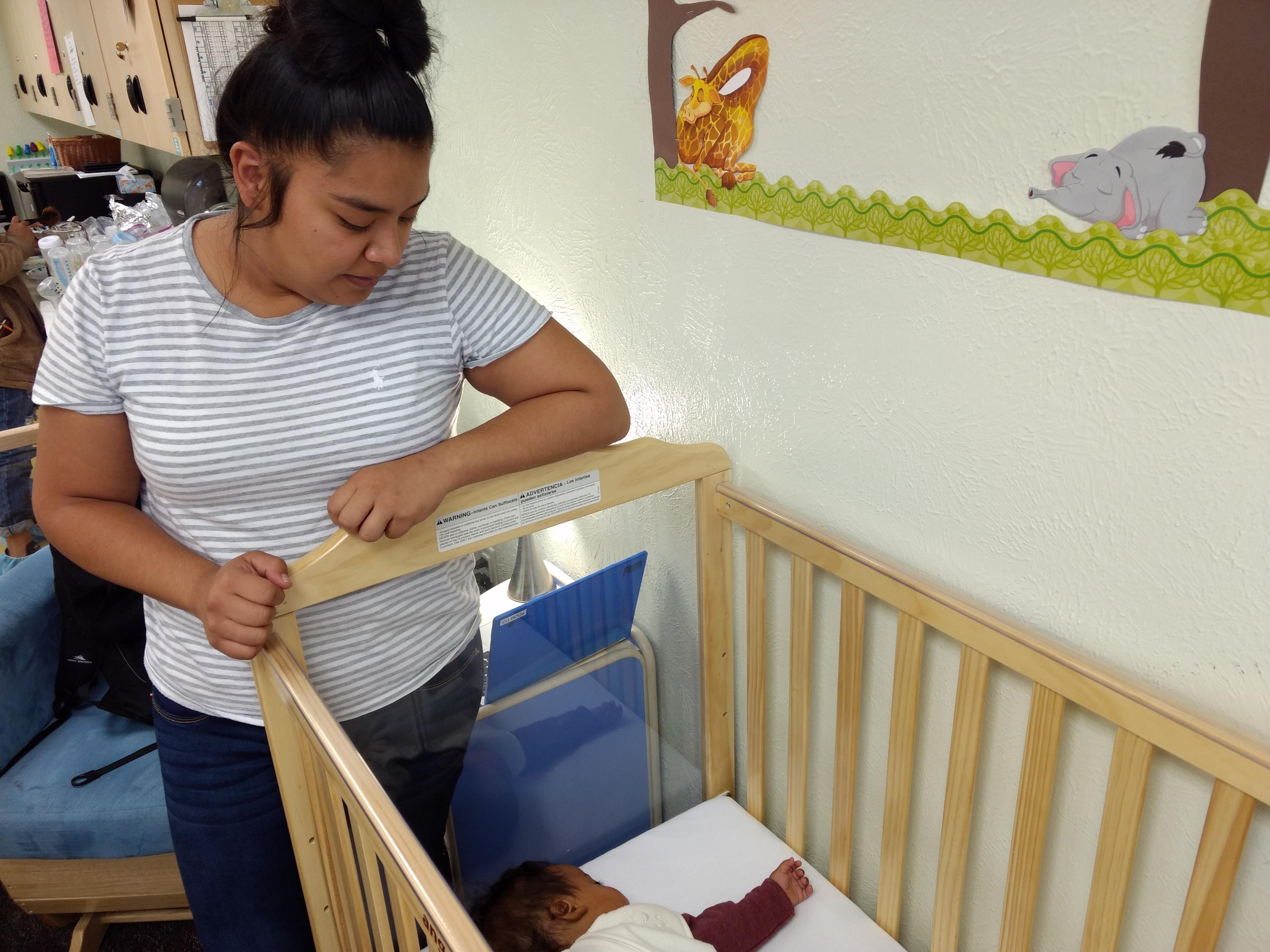
All the while, Prisma has kept coming to the high school in Valverde that Florence Crittenton runs for teen mothers in partnership with Denver Public Schools. Prisma is scheduled to earn her high school diploma in January. Her sons, the eldest almost 2 and his brother almost 1, are enrolled in the Florence Crittenton childcare center on the high school campus.
"I come every day," Prisma said. "Even with the homeless situation in the car I still came every day. Because I want better."
A report last month by the Annie E. Casey Foundation, a national advocate for children, drew attention to the challenges young parents such as Prisma and her 22-year-old partner, Joseph, face. "Opening Doors for Young Parents" noted that young families are at greater risk of homelessness, often because of family tensions after a child is born. About 1.1 million children have a young parent who experienced homelessness in the past year, and homelessness during those early years can hurt development.

“If we don’t support young people when they become parents, we are cheating two generations out of having a positive future,” Casey Foundation President and CEO Patrick McCarthy said when the report was released. “We can help young adult parents develop the skills they need to raise their children, contribute to their communities and drive our national economy forward.”
The foundation recommended ensuring young parents get education and jobs that can lead to financial stability, as well as emotional support as they make the transition to adulthood while raising children. Florence Crittenton has been doing that for decades. Banning, who's worked at the organization since 2004 and been its president since 2014, finds hope in the resiliency of the young mothers.
"These young moms, they really work to be prepared when opportunity arises," Banning said.
Four years ago, Banning was waiting at the school for a recent graduate who was to accompany her to a speaking engagement. When the young woman arrived in a truck, Banning noticed a jumble of belongings in the bed. Only when asked did she admit her mother had kicked her out and she'd been couch-surfing. Banning helped her find housing, and kept thinking that it was only by chance she had seen that the alum needed help.
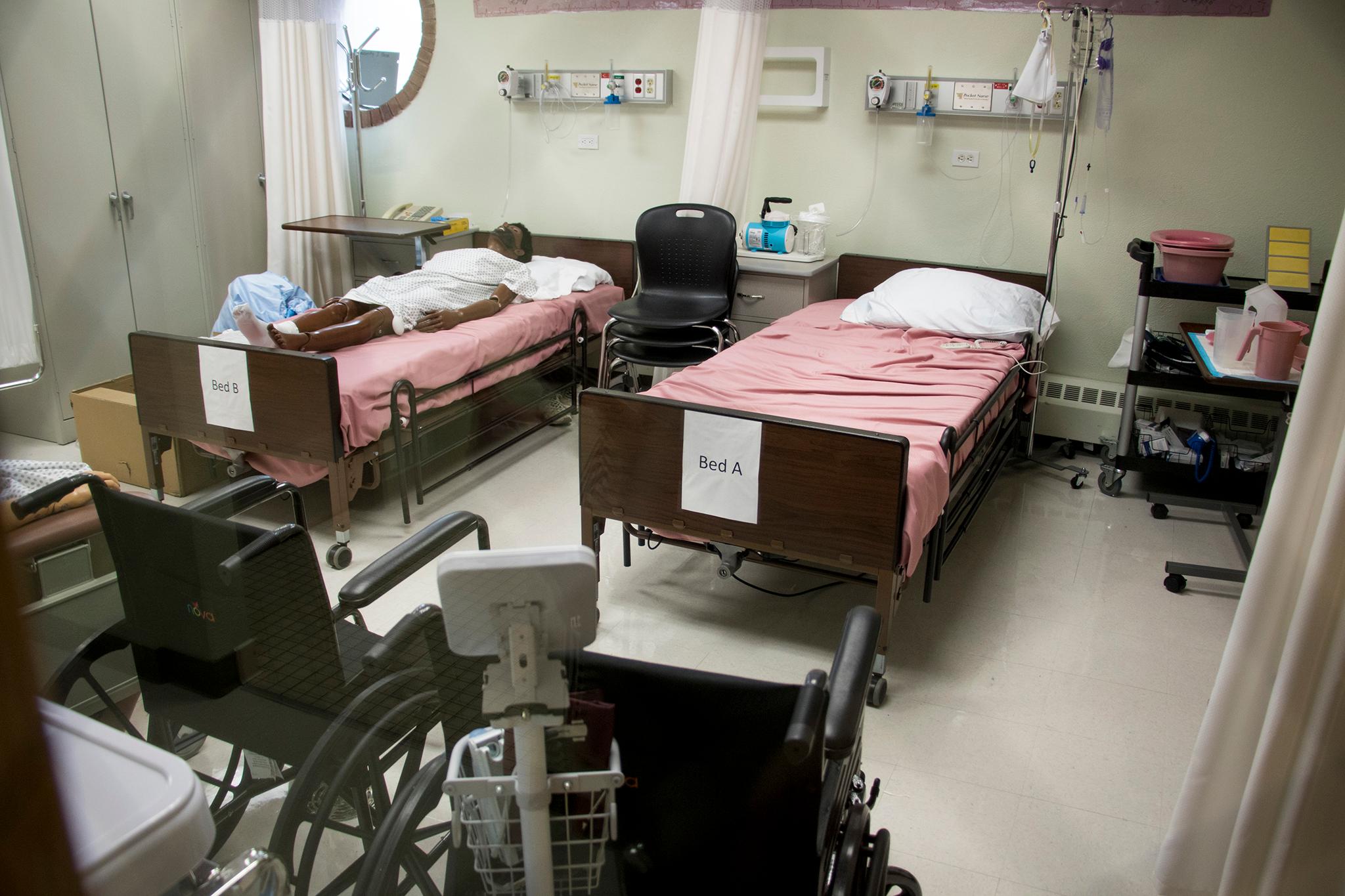
Now, Banning is about to hire what she calls a transition advocate, someone who will check in regularly with former students and try to help when they need help -- questions about jobs or education, crises involving housing or food.
"We want to make sure that after they graduate from here, we continue to provide support so that that transition is smoother," Banning said. "Every obstacle we've seen, we've taken care of it."
According to the Casey study, young parents with partners still earn a median family income of just $23,000, slightly above the federal poverty level for a family of three. And, unlike Prisma, many Crittenton students don't have support from their babies' fathers. The study also cited a study that found that single mothers with associate degrees make an average of $152,927 more over their lifetimes than those with only a high school diploma, and those with bachelor's earn $296,044 more.

Banning's transition advocate will be part of a Crittenton team that includes a career and academic counselor who advises not only students but their partners. Prisma's partner, Joseph, a security guard, has been working with the counselor to complete his GED and explore a career path.
Prisma had dropped out of high school in 2015. Two years ago Joseph, whom she'd met in a Job Corps program, saw a flyer and encouraged Prisma to enroll at Crittenton, which normally has about 200 students. Now Prisma is set to graduate with not only a diploma but a certificate in childcare. Other mothers at her school are studying to be certified nursing assistants. Prisma plans to use her certificate to work while studying further to be a 911 dispatcher. She's already looking for a child care center that will hire her and enroll her boys, as she won't be able to rely on Crittenton after she graduates.
A campus clinic staffed by a physician's assistant and a medical assistant means students don't have to miss class to keep health appointments elsewhere. In addition, a counselor versed in benefits for women, infants and children visits Crittenton regularly, so students don't have to travel to aid offices. The infant nursery where gentle harp music played from a computer one morning and the childcare classrooms decorated with book-themed murals on campus also cut down on absences. Young mothers, many of whom juggle work along with school, don't have to rely on relatives or worry if they're short on money to pay for a sitter. Attending school regularly increases the chances of graduation.
The dimly lit basement is brightened by toys and gently used baby clothes moms can buy with "baby bucks" they earn for good attendance and grades. Prisma said she's able to get lots of supplies at the shop because "I'm always here."
Banning said: "We're not going to allow them not to move forward because of lack of resources."
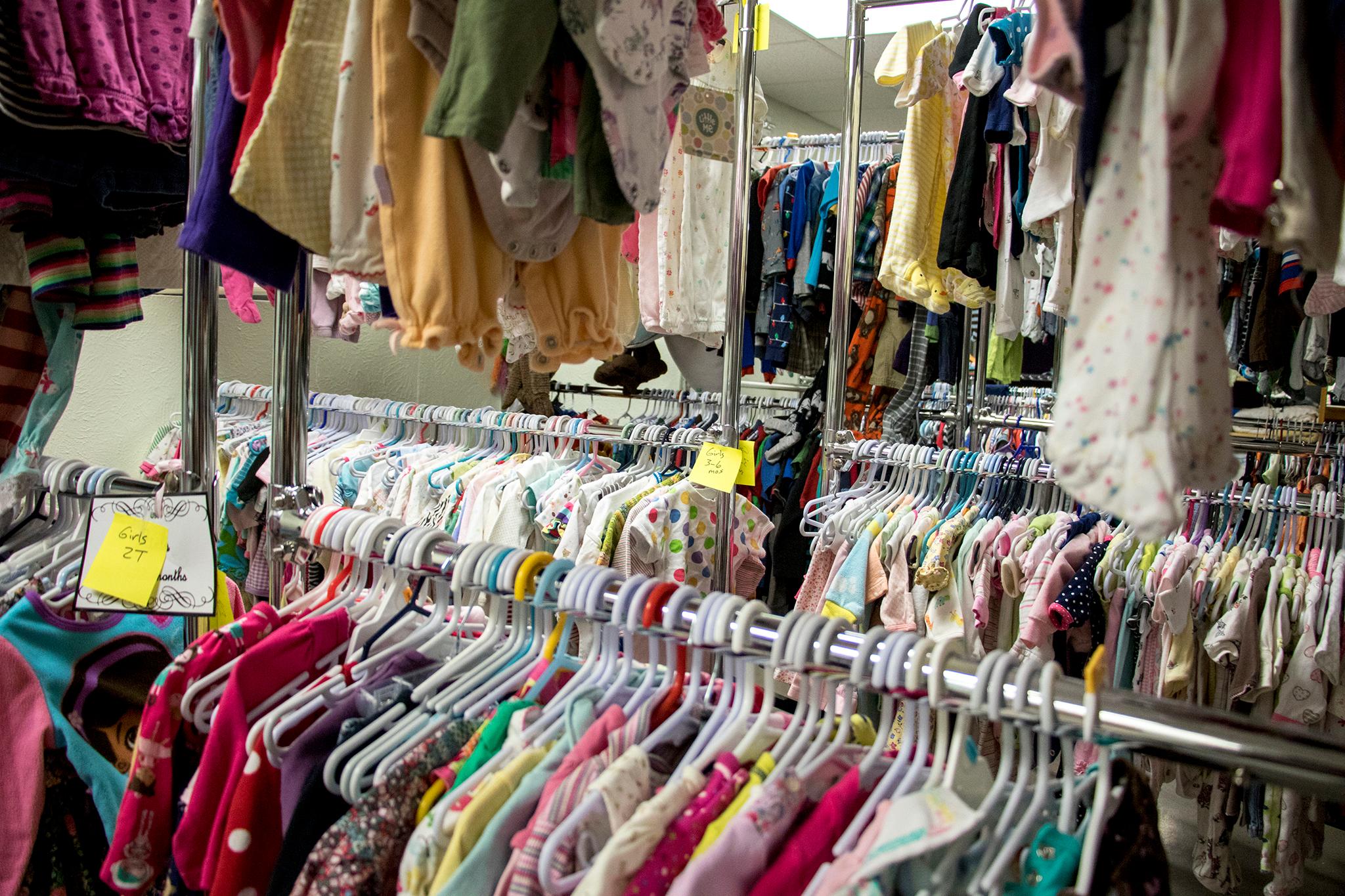
Housing, something she can't control, remains a concern in a city in a housing crisis. Many of her students rely on public transportation, and for some, commutes are getting more difficult as they move further and further from Denver in search of cheaper rents. Prisma has considered moving to Colorado Springs, where she's seen apartments renting for $700.
"I've kind of held back because I want to finish school," she said.
Banning has seen students miss weeks or months of school when their lives are disrupted by an eviction. She always allows them back.
Crittenton students are coached on parenting, financial literacy, resume writing. In a bright art therapy room off one of the gleaming halls, the curriculum promotes the self-awareness teens need to mature. The childcare teachers don't just care for babies and toddlers, they teach the young parents to do so. It's not many schools where PA announcements from the office include encouragement to read to children every day, "as this is a great piece of the development."

Banning is confident young women leave Crittenton ready for their next steps. So confident she's hired several graduates. Among them is MonaLisa Martinez, a mom at 16 who was a 1993 graduate. Martinez now runs Crittenton's early childhood education center.
Banning, an advocate and supporter of all her students, said: "These women are amazing. They have all the potential in the world. They just need an opportunity."
Correction: An earlier version incorrectly stated the start of Banning's tenure as president Florence Crittenton Services of Colorado. She has been president since 2014.


